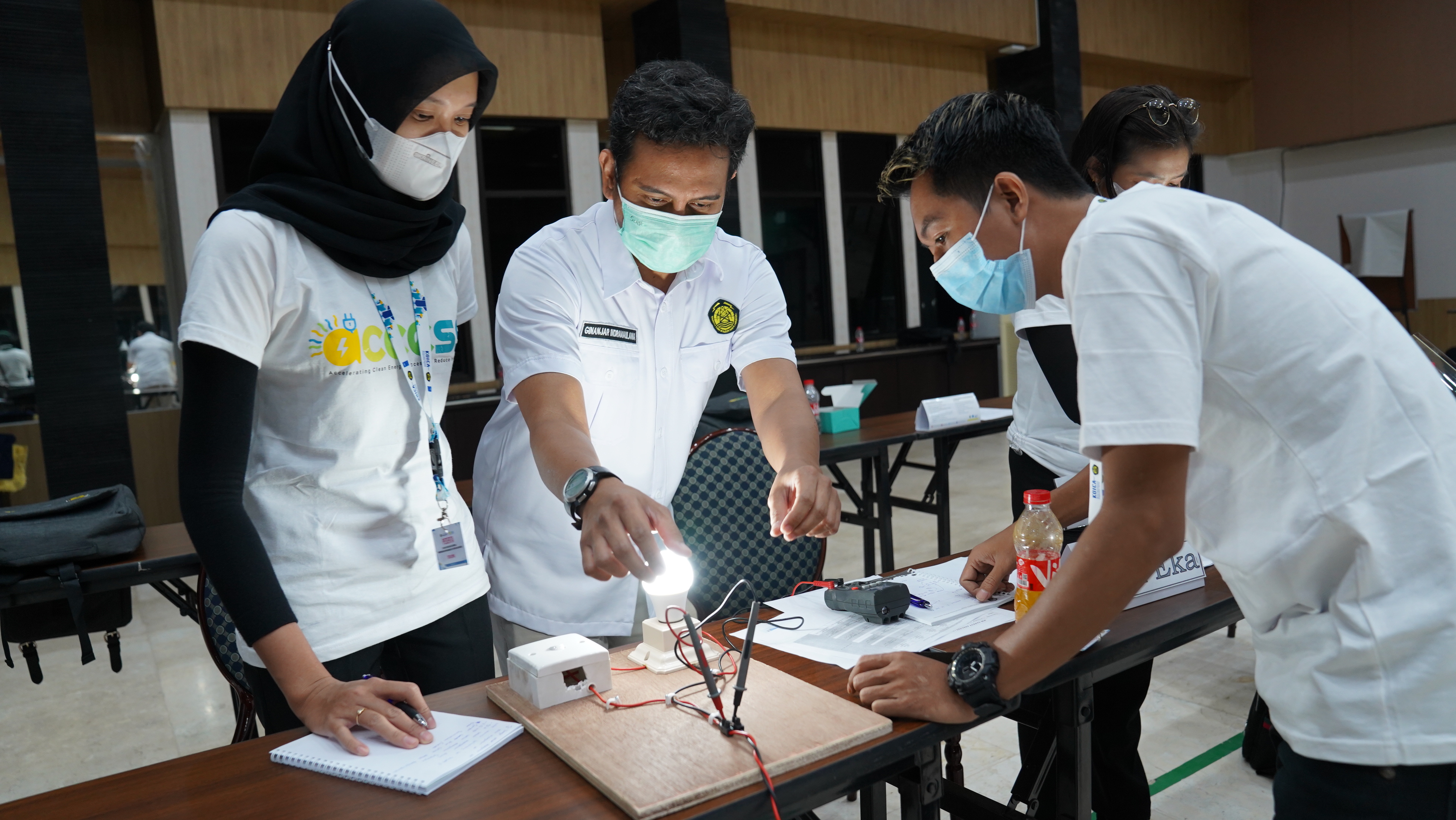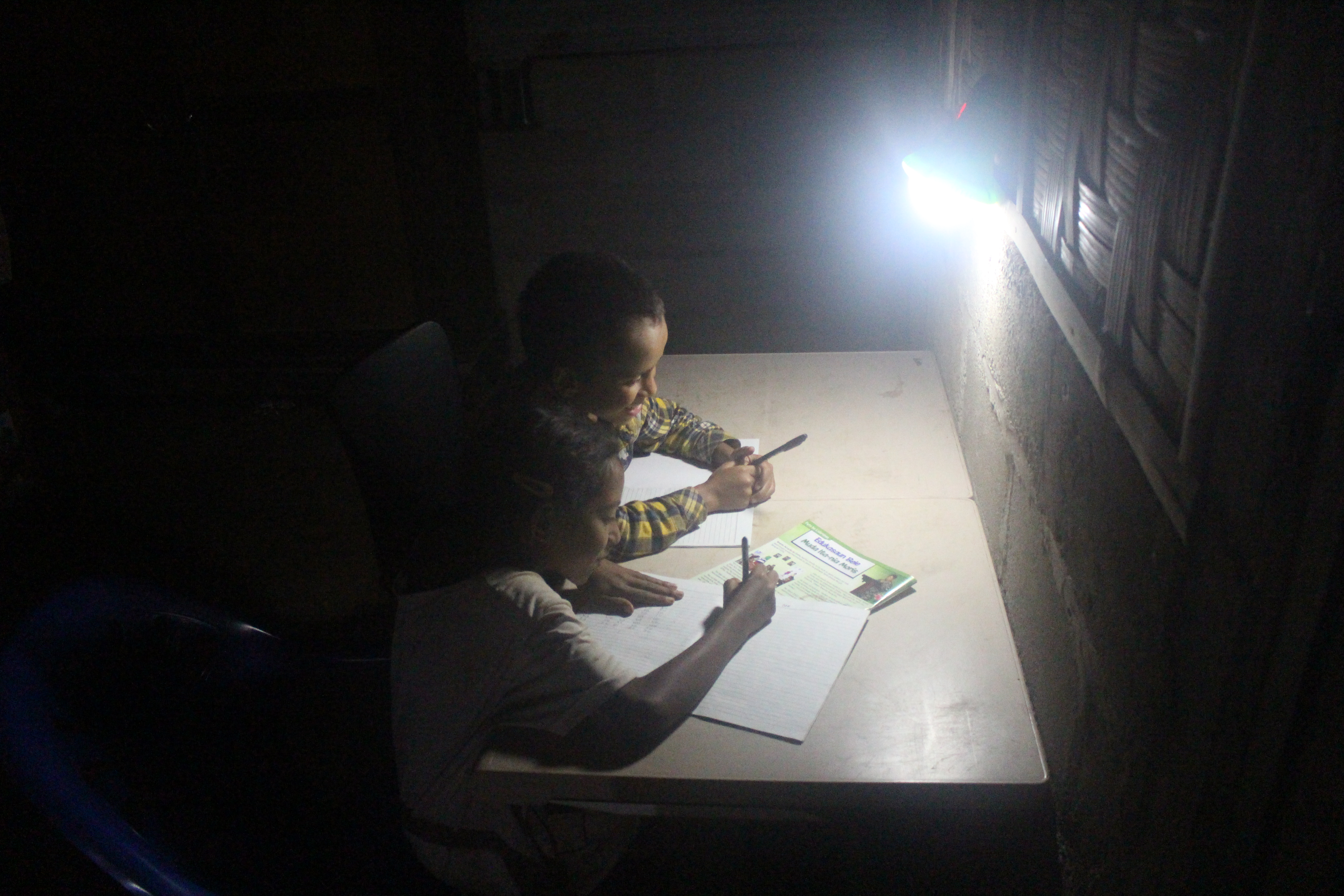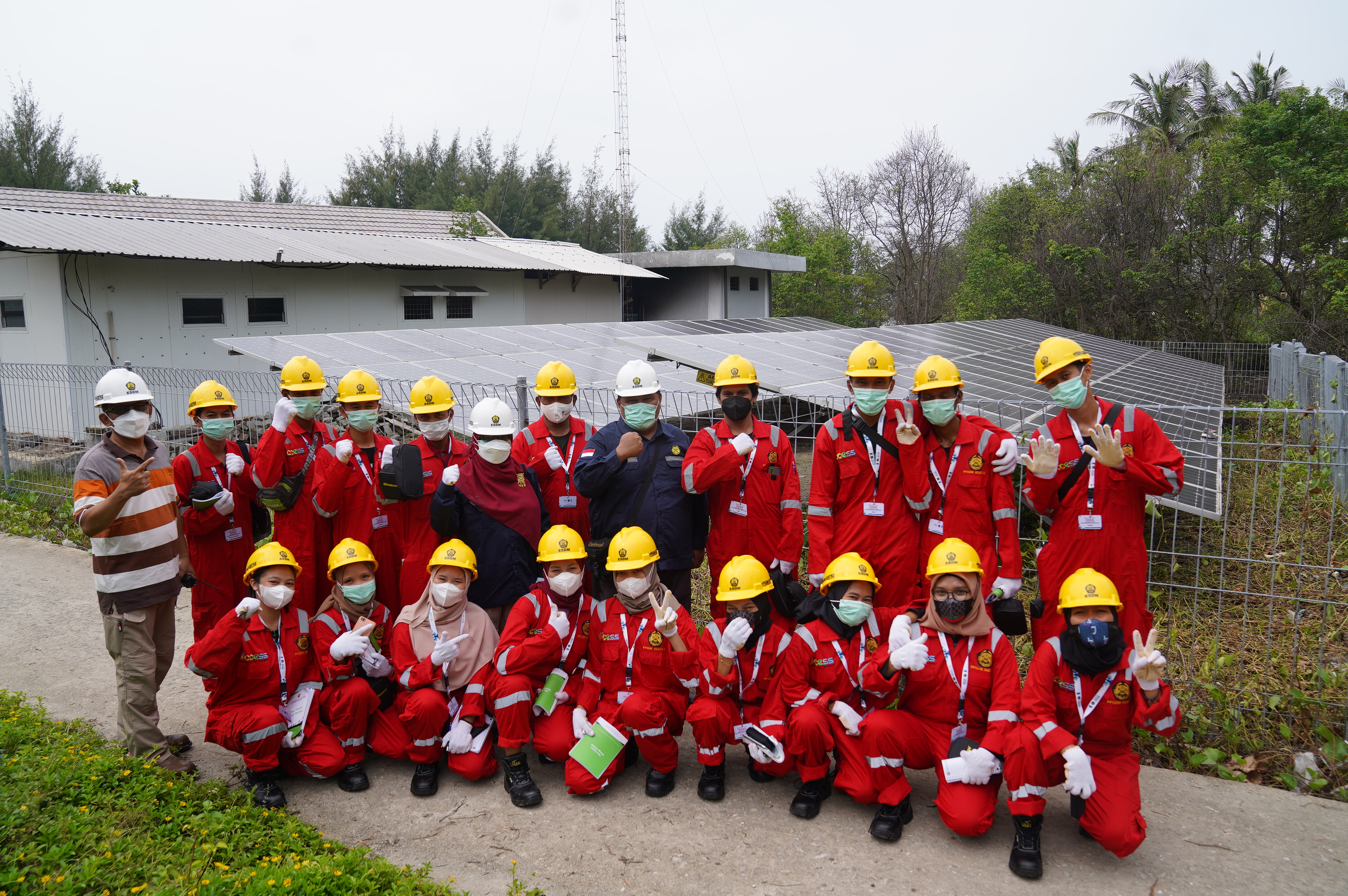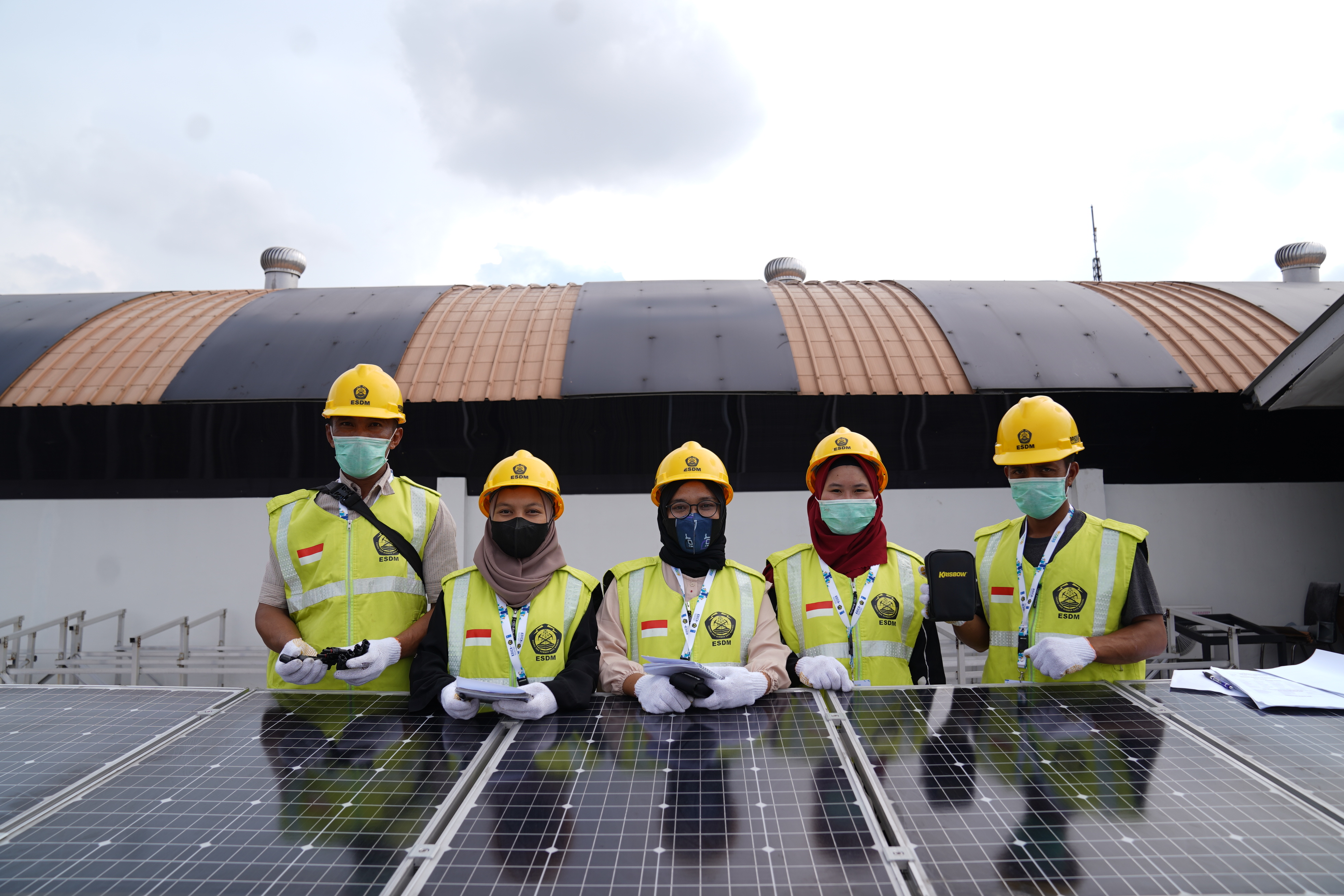 Solar-powered Electric and Water Supplies
Accelerating clean energy access to reduce inequality in isolated villages of Indonesia and Timor-Leste
Solar-powered Electric and Water Supplies
Accelerating clean energy access to reduce inequality in isolated villages of Indonesia and Timor-Leste

Challenges
While Indonesia has a high accessibility to electricity rate of about 98 percent (2018 figure), electricity access in rural, mountainous and remote areas of the country remains low, with a large gap between rural and urban regions. In Timor-Leste, the electricity supply rate in rural areas and villages is about 79 percent (2018 figure), leaving many residents in rural areas without electricity. In Timor-Leste, about 40 percent of the population also lacks access to clean water. These difficulties persist due to a lack of financing and basic infrastructure in the countries. Both Indonesia and Timor-Leste are seeking ways to increase the electricity supply rate and improve equitable access to energy for its populations.
Towards a Solution
This project addresses inequalities in access to electricity and water for isolated and vulnerable communities in Indonesia and Timor-Leste. The project uses eco-friendly technologies to fill electricity and water gaps in remote areas by providing solar lamps and solar-powered water pumps. Communities are also instructed in the use and timely maintenance of the technologies.
The Korea International Cooperation Agency (KOICA) offices in Indonesia and Timor-Leste facilitate the project by providing experts, overall management, financial support and regular monitoring. The United Nations Development Programme (UNDP) in Indonesia and Timor-Leste manages the project and keeps close communication with the cooperating partners. The Ministry of Energy and Minerals of Indonesia, as a beneficiary partner, offers administrative support within Indonesia, while providing technical support for Timor-Leste to enhance accessibility to clean water. The Ministry of State Administration Timor-Leste, likewise a beneficiary partner, offers administrative support, such as domestic resolution of legal issues, procurement procedures in accordance with domestic law and human resources needed for the project.
To select the project sites in Indonesia and Timor-Leste, KOICA communicated with local organizations with expertise in the sector and, in cooperation, conducted a full survey of each country. Through this survey, 23 Indonesian villages and 25 Timor-Leste villages were identified for electricity support. Eleven of the 25 villages in Timor-Leste were also identified for improved access to clean water.
In Indonesia, appropriate solar power plants are being constructed in the 23 villages in consideration of the area’s technological status. A Highly Efficient Solar Lamp System is being installed in the 25 villages in Timor-Leste, which is a system that accumulates energy during the day for nighttime use by households and facilities (according to the 2021 annual report, 187 households had received the lamps out of 1,684 households targeted, benefiting 1,007 people). Solar water pumps will be installed in the 11 Timorese villages needing water, sending water to storage tanks and wells close to residences. A start-up Renewable Energy Service Company will be established in each community to install and maintain the infrastructure.
The Highly Efficient Solar Lamp System was developed by the Ministry of Energy and Mineral Resources of Indonesia for distribution in low-income and off-grid households and is a highly successful national project. The system includes a 20-watt peak capacity solar panel, 4 LED lights and batteries that can operate for a maximum of 60 hours. Being delivered throughout Timor-Leste under this South-South and Triangular cooperation project allows Indonesia to transfer its sustainable technology to a neighbouring country.
To ensure the sustainability of the project, the Indonesian Ministry of Energy’s Human Resources Development Agency prepared a technical training course on the solar lamp technology and a certification system for Timor-Leste experts. Indonesia will also be available for continuous instruction related to operation and maintenance and will conduct field trips to share knowledge on how to operate and maintain the system distributed to Timor-Leste. As the infrastructure will be operated by village-owned enterprises, this will become a regular source of income for the community, further assisting its sustainability. It is expected that this project’s actions and successful experiences with South-South and Triangular cooperation will trigger further technical interactions between Indonesia and Timor-Leste, in particular targeting underprivileged areas.
This project addresses SDG 7 (access to affordable, reliable, sustainable and modern energy for all) by contributing to power equality through the supply and distribution of solar lamps. The project contributes to SDG 6 (availability and sustainable management of water and sanitation for all) by installing solar water pumps. It responds to SDG 13 (take urgent action to combat climate change and its impacts) by utilizing renewable energy.
Contact Information
Countries involved
Supported by
Implementing Entities
Project Status
Project Period
URL of the practice
Primary SDG
Primary SDG Targets
Secondary SDGs
Secondary SDG Targets
Similar Solutions
| NAME OF SOLUTION | Countries | SDG | Project Status | |
|---|---|---|---|---|
Accelerating the Transformational Shift to a Low-Carbon Economy in Mauritius Towards supplying 35 percent of the country’s energy needs with renewables by 2025 |
Indonesia, Republic of Korea, Timor-Leste | 05 - Gender Equality 09 - Industry, Innovation and Infrastructure 13 - Climate Action | Ongoing | View Details |
Accelerator Labs Network Following collective intelligence methods to address emerging sustainability challenges and the growing demand for local solutions |
Indonesia, Republic of Korea, Timor-Leste | 08 - Decent Work and Economic Growth 13 - Climate Action | Ongoing | View Details |
Adaptation for Smallholder Agriculture Programme Establishing better working conditions for smallholder farmers through the use of good practices and new technologies |
Indonesia, Republic of Korea, Timor-Leste | 08 - Decent Work and Economic Growth 11 - Sustainable Cities and Communities 13 - Climate Action 15 - Life on Land | Ongoing | View Details |
Addressing the Transboundary Dimensions of the 2030 Agenda through Regional Economic Cooperation and Integration in Asia and the Pacific Promoting co-deployment of ICT and transport infrastructure corridors in Central Asia region |
Indonesia, Republic of Korea, Timor-Leste | 09 - Industry, Innovation and Infrastructure 13 - Climate Action 17 - Partnerships for the Goals | Completed | View Details |
Adolescent Nutrition Programme to Address the Triple Burden of Malnutrition in Indonesia Nourishing today’s teens and tomorrow’s future in Indonesia |
Indonesia, Republic of Korea, Timor-Leste | 02 - Zero Hunger 05 - Gender Equality | Completed | View Details |



